Why Monster Hunter World Lags and How to Fix It
Enter the thrilling realm of Monster Hunter World, where you take on the mantle of a hunter and face down massive, powerful beasts across vibrant ecosystems. Whether you're battling giant monsters in remote forests or exploring new locales for materials to craft top-tier weapons and armor, the game offers boundless excitement.
Unfortunately, one issue that can really disrupt the experience is lag. Let's delve into the main reasons behind lag in Monster Hunter World and explore solutions to help make your hunting experience seamless and enjoyable.
Why Does Monster Hunter World Have Lags?
Lag in Monster Hunter World can come from multiple sources, affecting both gameplay quality and responsiveness. Here are the primary reasons for the lag issues many players experience:
1. Internet Connectivity
Since Monster Hunter: World relies heavily on a stable internet connection—particularly in co-op play—network stability is crucial. Lag often arises from high ping, packet loss, or fluctuating network speeds. This can be due to network congestion, slow Wi-Fi, or an underperforming router, which can cause delayed responses and stuttering movement for players. Ensuring a stable connection is essential to avoid erratic gameplay.
2. Server Strain and Matchmaking Load
The game servers may experience lag during high-traffic periods, especially when there's a global influx of players. When servers reach capacity, players can experience noticeable lag spikes. This is especially problematic during peak hours, as increased load can slow down matchmaking and cause frustrating delays.
3. System Limitations
Your device's hardware also plays a role in how smoothly Monster Hunter: World runs. High CPU and GPU demands mean that older or lower-spec systems may struggle to meet the game's requirements. Insufficient RAM or an outdated graphics card can lead to sluggish performance, particularly in high-action scenes with multiple monsters and visual effects.
4. Software and Background Programs
Background programs that consume CPU and bandwidth can create performance bottlenecks that result in lag. Closing unnecessary applications while playing Monster Hunter: World can free up resources, helping to reduce these interruptions.
A Solution to Fix Monster Hunter World Connection
Want to quickly fix Monster Hunter lag? Yes, that's what everyone hopes for. We believe manual network configuration carries more risks because data is complex and interconnected. So how about automating this process? GearUP Booster is exactly such a game VPN - it uses AI-assisted network diagnostics to select the most optimal nodes for stable connections. During multiplayer hunts, you'll clearly feel reduced lag with no more delayed actions. Currently supporting over 2,500 games, GearUP Booster can precisely solve network issues for each specific game - something regular VPNs or ISPs can hardly achieve.
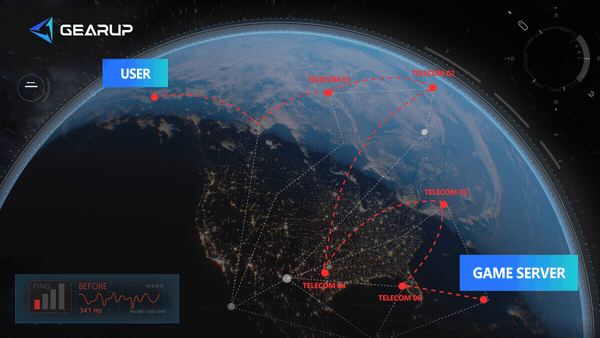
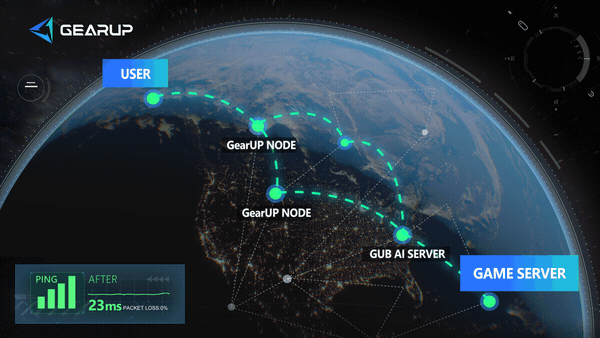
Step 1: Click the button below to download GearUP Booster.
Step 2: Search for Monster Hunter World.
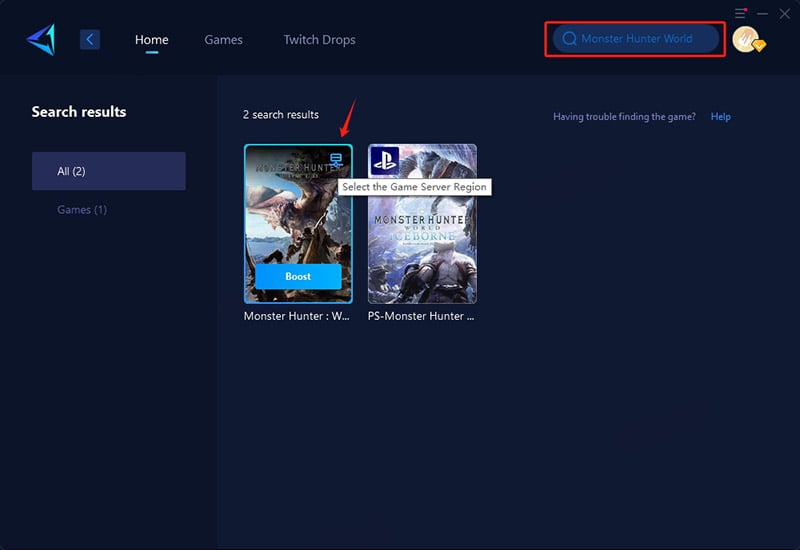
Step 3: Select the PC (Steam) or PlayStation version — yes, you can optimize Monster Hunter World on PlayStation through GearUP Booster on your PC.
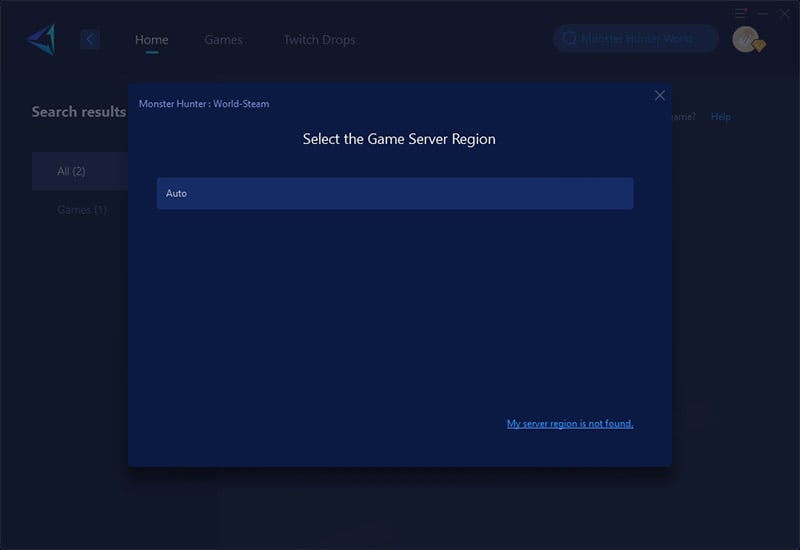
Step 4: Start boosting, then launch the game or follow the instructions to configure your console network.
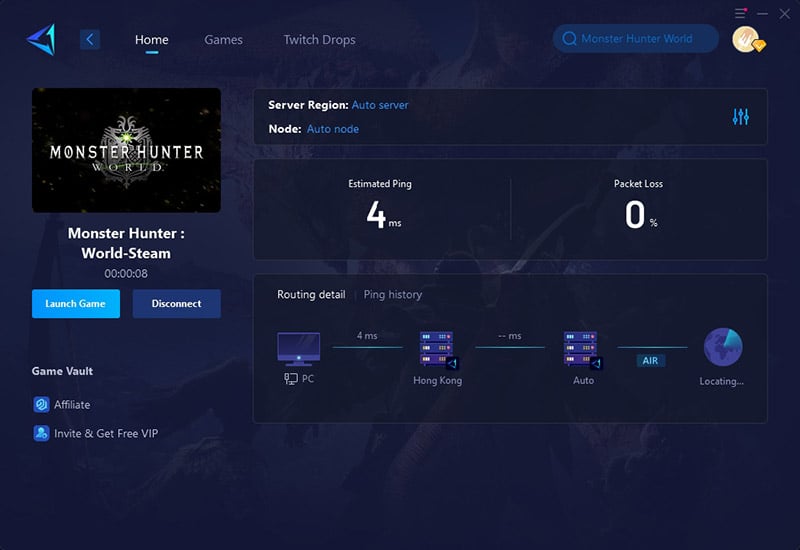
Other Meathods For Lag
If your device meets the recommended specs for Monster Hunter: World but still experiences lag, the following tips may help improve performance:
1. Restart Your Device
- A quick reboot can refresh system resources, helping your device handle the game more efficiently.
- Update Your Game and Operating System
- Keeping your game and OS updated ensures that you have the latest bug fixes and performance improvements, which can reduce lag.
2. Adjust Game Settings
Lowering graphics quality, disabling unnecessary visual effects, or reducing frame rates can lighten the load on your system, minimizing game lag.
3. Close Background Applications
Running multiple applications can consume memory and processing power. Closing any unnecessary apps can help ensure that more resources are dedicated to Monster Hunter: World.
4. Use Wired Connections When Possible
Wi-Fi is more prone to interference than Ethernet. A wired connection can offer a faster and more reliable connection, reducing network-related lag.
How Lag Ruins Your Monster Hunter World Experience?
Lag in Monster Hunter World can completely ruin the hunting experience, turning epic battles into frustrating disasters. Even a slight delay can mean mistimed dodges against lethal attacks, failed combos during critical openings, or—worst of all—disconnects right before slaying a monster. Multiplayer hunts suffer the most, as synchronization issues may cause players to see different monster movements, leading to unfair hits or failed teamwork. Input lag makes weapon mechanics like the Great Sword's True Charged Slash or the Bow's dodge-dancing nearly impossible to execute precisely. Persistent rubberbanding or sudden spikes can waste precious items, carts (lives), and ultimately, the entire quest. For a game built on split-second reactions and coordinated play, smooth connectivity isn't just ideal—it's essential.
Conclusion
Experiencing lag in Monster Hunter: World can be frustrating, especially when it interferes with intense monster battles. By understanding the main causes of Monster Hunter: World lag and implementing solutions like GearUP Booster, players can significantly reduce latency and enjoy a smoother gameplay experience. Additionally, following basic optimization tips can further enhance your performance, allowing you to fully immerse yourself in the world of Monster Hunter without interruption.
About The Author
The End

